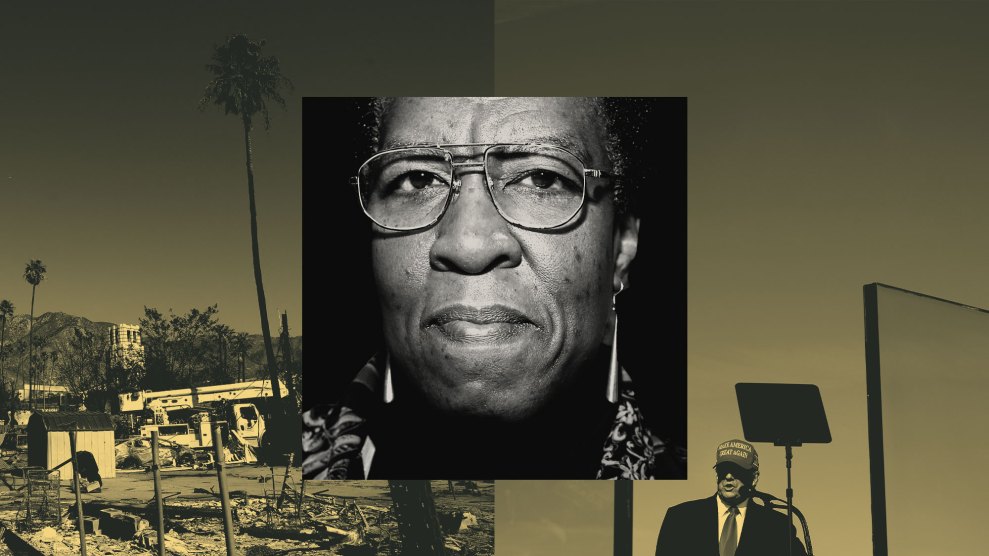In the last year, the nation has been so preoccupied with terrorism fears and economic woes that George W. Bush’s actions on many critical issues have gone largely unnoticed. Nowhere is this more true than with Bush’s record on protecting the environment. Not that anyone expected a green administration — Bush’s ardently pro-business stance left little doubt he would always favor private gain over the public good, on the environment as in all other things. But the president’s record on environmental issues — from withdrawing from the Kyoto agreement on global warming to pushing a Neanderthal, fossil-fuel-driven energy policy — has been so abysmal that it has surprised even the most cynical observers.
Environmental journalist Ted Williams — who wrote our story on the Bush administration’s plans to build roads through the wild lands remaining in our national forests (“A Crossroad for Wilderness“) — is no cynic. But he is a contrarian — such a contrarian, in fact, that until recently he called himself a Republican. Never mind that he is 56 years old and isn’t sure he’s ever voted for a Republican. Never mind that he’s spent much of the last 30 years reporting on Republican-led initiatives that threaten our air and water and endanger our wildlife. Truth be told, Williams says, for years he kept calling himself a Republican mostly just to tweak his wife and friends. First and foremost, though, Williams is a passionate outdoorsman, who has hiked and camped in dozens of national forests and regards Alaska’s Tongass rain forest as “definitely our wildest and most beautiful.”
In a major victory for wilderness, Clinton’s Forest Service issued a ban in 1999 on building roads in the most wild areas of the national forests. But the Bush administration quickly began undermining that policy, and by July 2001, had removed 12 forests from roadless protection, including the Tongass. Roads, of course, not only bring in logging trucks. They also pave the way for the resorts and other kinds of development that those who treasure the wild most fear. Now, it appears, about the only thing that can stop the bulldozers from rolling through America’s largest rain forest is legislation currently before Congress. “We all thought the Tongass was finally saved,” says Williams. “It’s such a disappointment to see Bush come in and undo all that had been accomplished.”
Much of the corporate-owned media hasn’t figured it out yet, but these are good times to be a journalist in Washington, D.C. With an administration so entwined with business it would make Ronald Reagan blush, the need for the press to be a vigilant watchdog is more crucial than ever. So we at Mother Jones are delighted to announce the appointment of Ken Silverstein as our Washington editor. Silverstein, 44, has been covering the Capitol since the early days of the Clinton administration and has earned a reputation as a dogged reporter who probes beyond the official line and unearths the real story. Earlier this year, American Journalism Review named Silverstein one of the “unsung stars” of Washington journalism. In this issue, he explores how the odd coupling of evangelical Christians and hard-line Jews has helped transform Bush’s policy toward Israel [“Born-Again Zionists“]. “It’s got to be one of the strangest alliances ever,” he says of the evangelical/Jewish coalition. “After all, the evangelicals believe the Jews will be destroyed in the Apocalypse.”
















